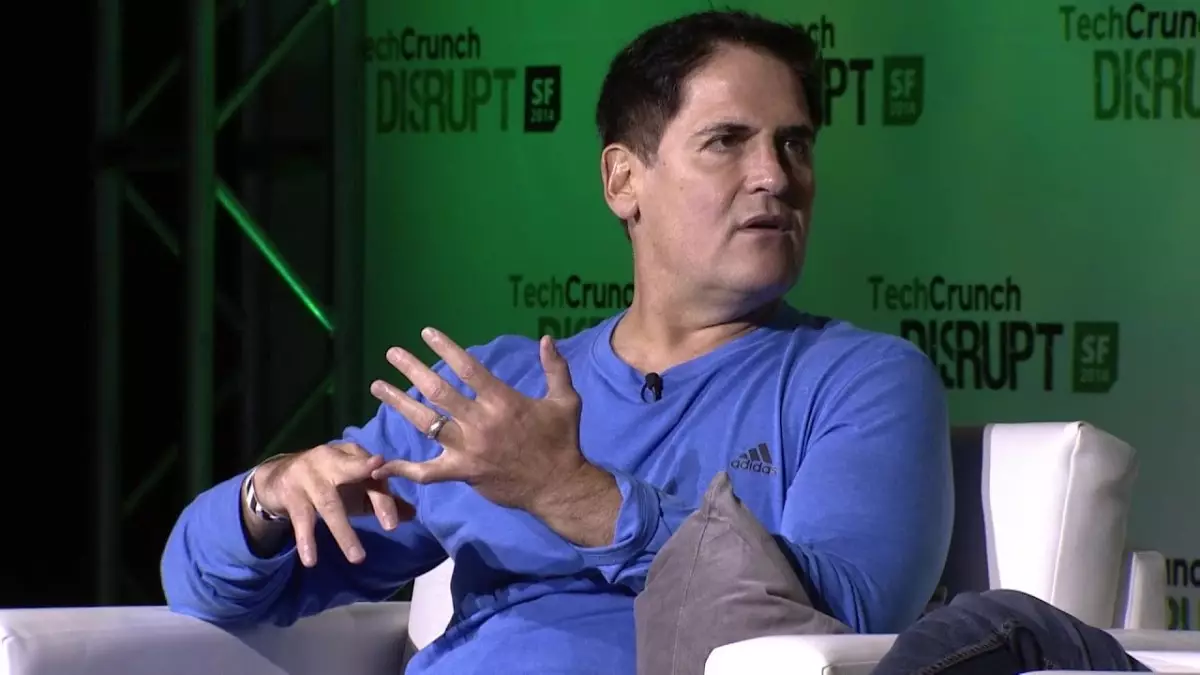In a landscape increasingly characterized by uncertainty and rapid technological evolution, entrepreneurs are looking for innovative solutions to emerging challenges. Recently, Mark Cuban, the renowned entrepreneur and investor, has recognized a window of opportunity to fund a potential successor to TikTok utilizing Bluesky’s AT Protocol. This move highlights a significant shift towards decentralization in social media as users search for platforms amid fears of a potential TikTok ban in the U.S. With many users already migrating towards alternatives like the Chinese app RedNote, the market seems ripe for a fresh approach to social networking.
The AT Protocol, a framework conceived by Bluesky, is designed to facilitate the development of decentralized social media applications. It emerges as a response to developers’ criticisms of current protocols like ActivityPub, which powers existing platforms such as Mastodon. By integrating advanced technological capabilities, the AT Protocol promises to create an ecosystem conducive to an open social web, thereby addressing concerns over user agency and data ownership.
The surge of interest in decentralized applications signals a shift in consumer preferences. With the aftermath of the U.S. presidential elections, Bluesky has experienced a dramatic increase in user registration, leaping from 10 million to over 27 million. This growth demonstrates a robust appetite for platforms that prioritize user choice and control over data. The confluence of external pressures, including potential bans on mainstream platforms, has only intensified this demand.
Cuban’s recognition of this trend is astute. His willingness to invest in a platform that can rival mainstream giants like TikTok underlines the potential for innovation within the context of a decentralized ecosystem. By leveraging the advanced capabilities of AT Protocol, developers can create customizable social networking servers that offer users unique experiences, unencumbered by the policies of large, centralized entities.
Cuban’s proposal emphasizes the importance of building a Minimum Viable Product (MVP) for prospective developers. By inviting innovators to showcase their ideas, Cuban is advocating for a competitive landscape that rewards creativity and practical solutions. This approach aligns with the ethos of decentralization, fostering a community-oriented environment where ideas can flourish, and users can benefit from diverse options.
Moreover, the extensibility of AT Protocol stands out as a noteworthy feature. Its architecture allows users to switch servers seamlessly, preserving their social connections and data regardless of the service they choose. In an era where user data often feels commodified, the ability to maintain ownership of one’s social presence is a radical, empowering shift. This could redefine how individuals engage with social media, establishing a new standard that prioritizes user rights and autonomy.
Cuban’s excitement around AT Protocol is not merely about supporting innovation; it also represents a calculated move to challenge existing giants like Elon Musk’s X. The ongoing tensions between Cuban and Musk underscore the competitive motivations driving this emerging shift in social media. Cuban’s critiques of X’s governance—especially in terms of content moderation and misinformation—highlight broader concerns prevalent in contemporary social media discourse.
By fostering a decentralized alternative, Cuban aims to create a vibrant community that can operate independently of the prevailing industry challenges, such as content suppression and user alienation. The emphasis on building products that prioritize user experience and accountability may resonate with a growing demographic disillusioned by traditional platforms.
The invitation Cuban extends to developers welcomes collaboration, suggesting that the next phase of social media evolution requires concerted efforts to redefine engagement frameworks. Whether it be through innovative social applications or platforms focused on visual storytelling, the AT Protocol provides a foundation upon which diverse services can be built.
As the tech landscape shifts beneath our feet, the future of social media lies in our willingness to embrace change and support new ideas. Mark Cuban’s initiative serves not just as an investment opportunity; it represents a commitment to a more inclusive and user-focused digital future—one where creativity, competition, and the values of decentralization can thrive. An era filled with potential lies ahead, and it will be the innovators who harness these opportunities that shape this new narrative.

